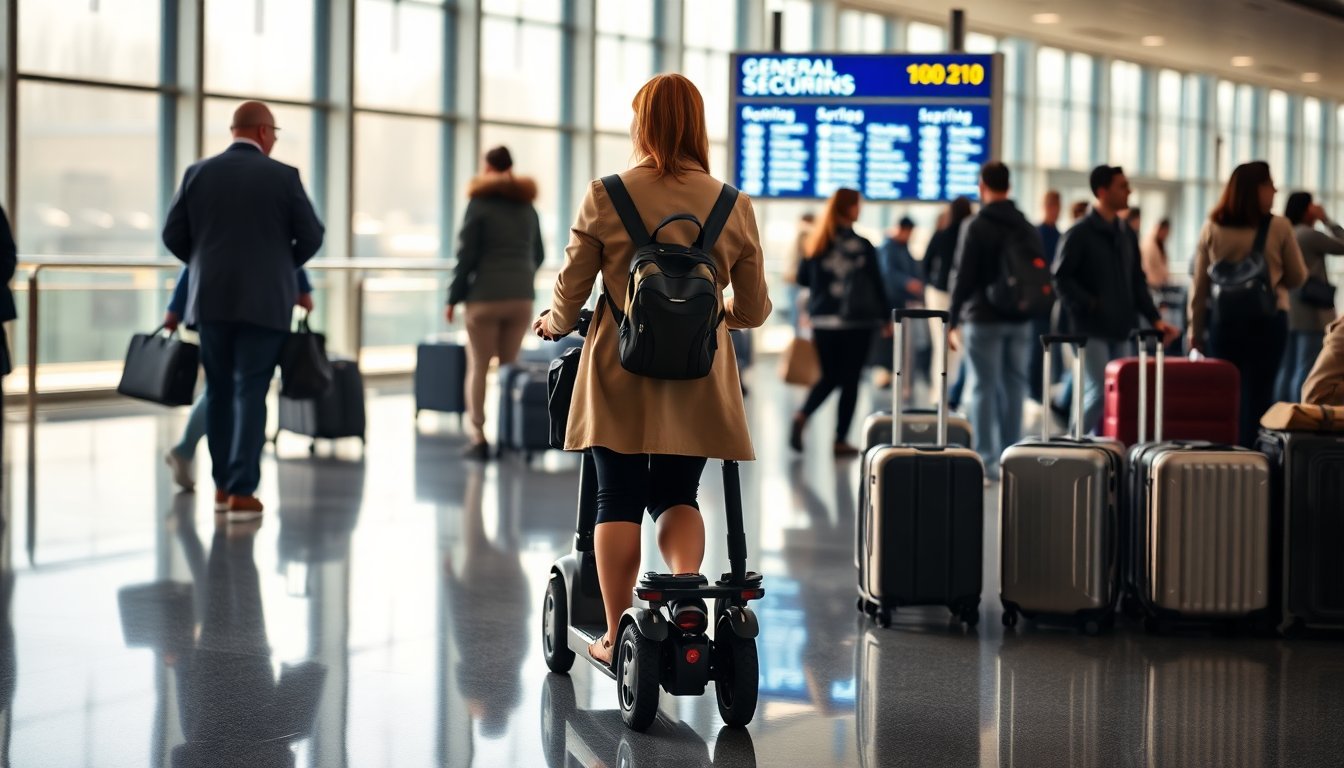Table of Contents
In an effort to enhance safety standards, Southwest Airlines is revising its boarding procedures for passengers who use mobility devices, such as wheelchairs and scooters. This change addresses growing concerns about the risks associated with lithium batteries, which are commonly found in these devices. Starting September 25, 2023, passengers will need to remove any removable lithium batteries from their devices and carry them into the cabin.
According to a memo from Dave Hunt, the vice president of safety and security at the airline, this new policy is essential for maintaining a secure environment on flights. Lithium batteries have been identified as a primary source of smoke and fire incidents onboard aircraft, although such occurrences are rare. The memo underscores the necessity for quick access to these batteries in case of an emergency.
Details of the New Policy
The upcoming adjustments to the boarding process will introduce a size limitation for lithium batteries. By January 11, 2026, batteries will be restricted to a maximum capacity of 300 watt-hours. This regulation is a significant step toward ensuring the safety of all passengers and crew members aboard Southwest flights.
Notification and Support for Affected Travelers
As part of this initiative, Southwest Airlines is proactively reaching out to passengers with upcoming travel plans that coincide with the policy’s implementation date. The airline aims to assist these individuals in understanding the new requirements and how to prepare for their journeys. Although the changes will impact less than 0.1% of Southwest’s customer base, the airline is committed to providing support for those affected.
This recent announcement follows previous updates made by Southwest Airlines regarding the visibility of portable chargers during flights. Such measures reflect the airline’s commitment to passenger safety and responsiveness to the evolving landscape of travel regulations.
Context of Lithium Battery Risks
Concerns regarding lithium batteries are well-founded, as incidents have been reported where these devices have caused significant safety issues during flights. For instance, a recent event on a Delta Airlines flight involved a lithium battery explosion in a passenger’s bag, necessitating an emergency diversion of the aircraft. This incident highlights the importance of implementing stringent safety protocols for handling lithium batteries during air travel.
Aspirations for Improved Safety Protocols
As Southwest Airlines adopts these new protocols, it positions itself as one of the first carriers in the United States to establish such safety measures. The airline’s efforts are part of a broader industry trend aimed at bolstering passenger safety and minimizing risks associated with potentially hazardous materials.
In addition to the new boarding requirements, Southwest Airlines permits passengers to bring a maximum of 20 spare batteries on board. This policy ensures travelers can access necessary power sources for their devices while remaining compliant with safety regulations.
Conclusion
As travel safety remains a priority for airlines worldwide, the changes being implemented by Southwest Airlines serve as a reminder for travelers to stay informed about evolving regulations. Passengers are encouraged to monitor weather conditions, document the contents of their luggage, and explore alternative travel options in advance. By taking these precautions, travelers can navigate the complexities of air travel more easily.
In summary, the adjustments to Southwest’s boarding procedures for passengers with mobility devices are designed to address safety concerns related to lithium batteries. This initiative represents a crucial step in enhancing overall air travel safety and ensuring that all passengers can enjoy a secure flying experience.


